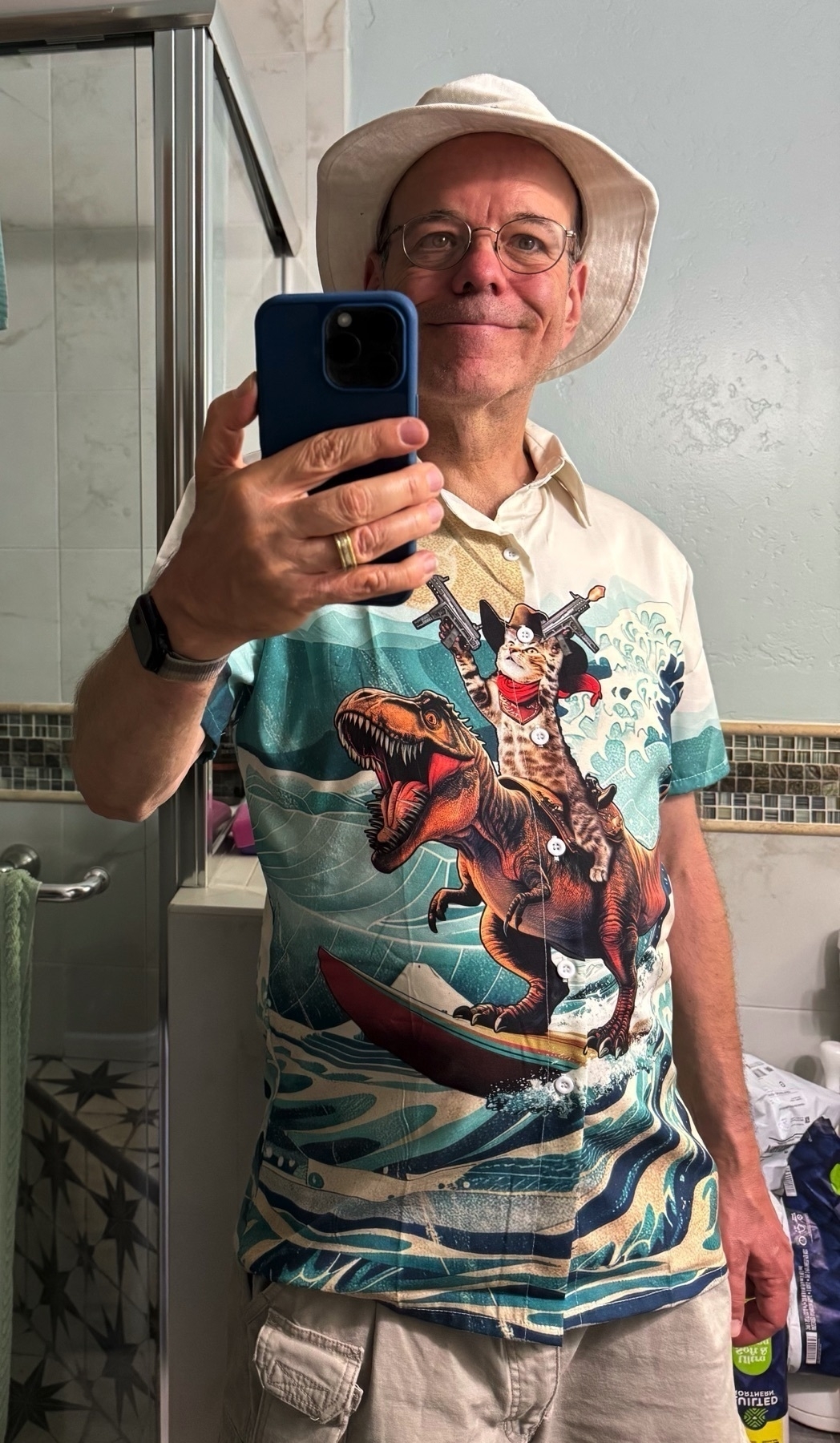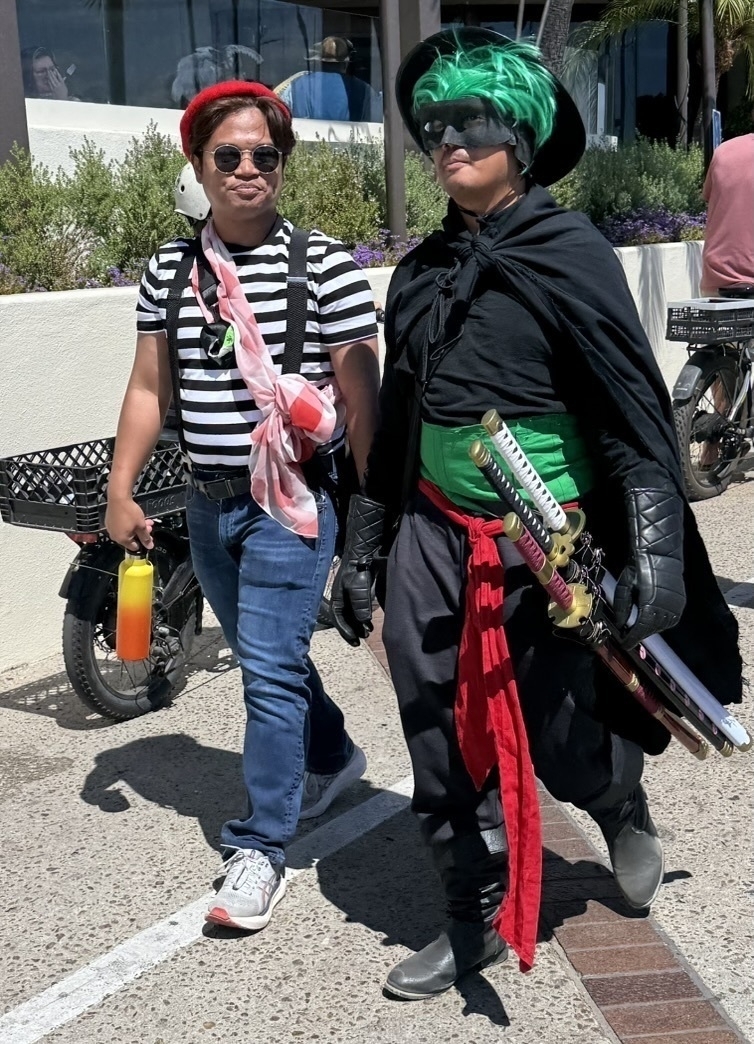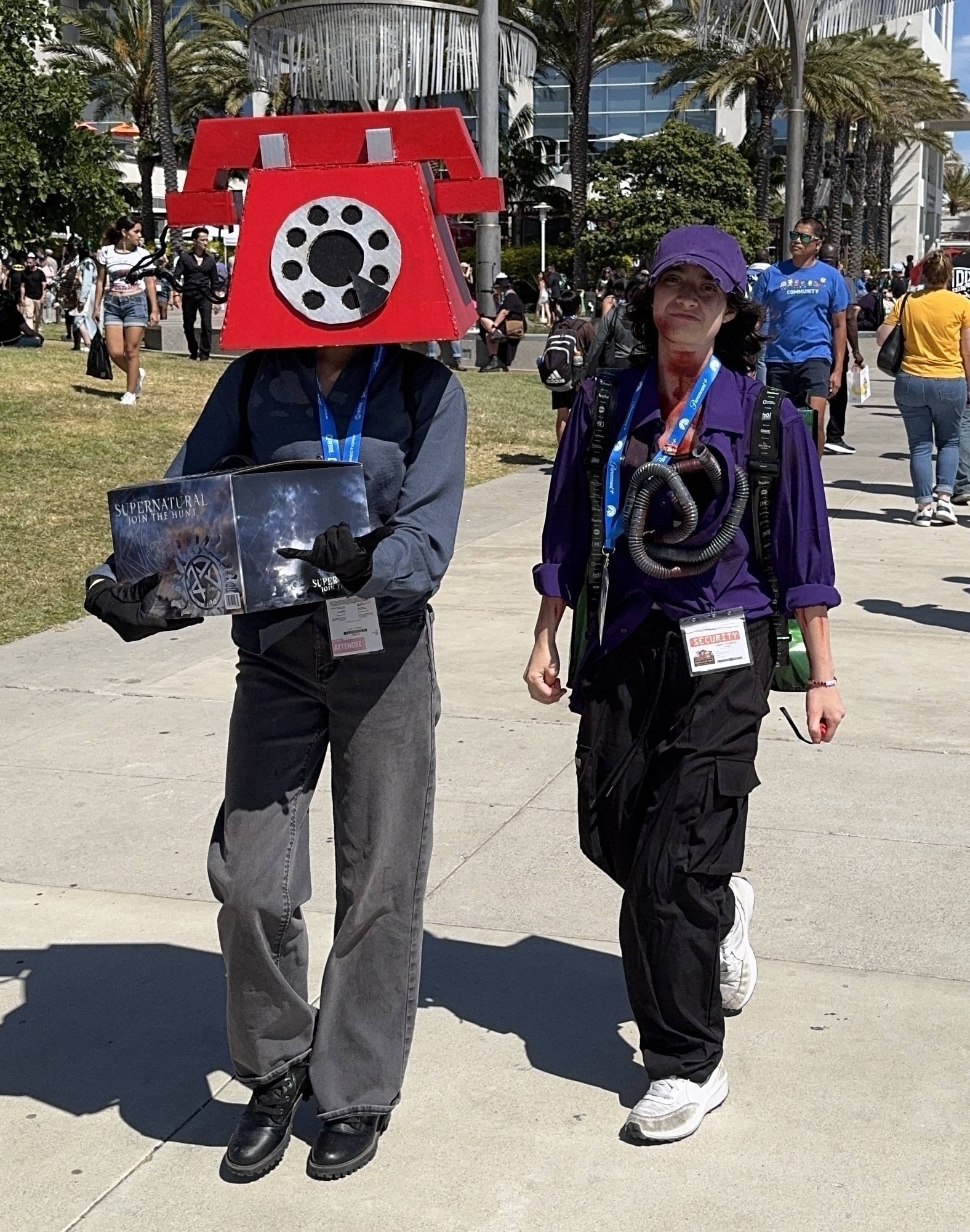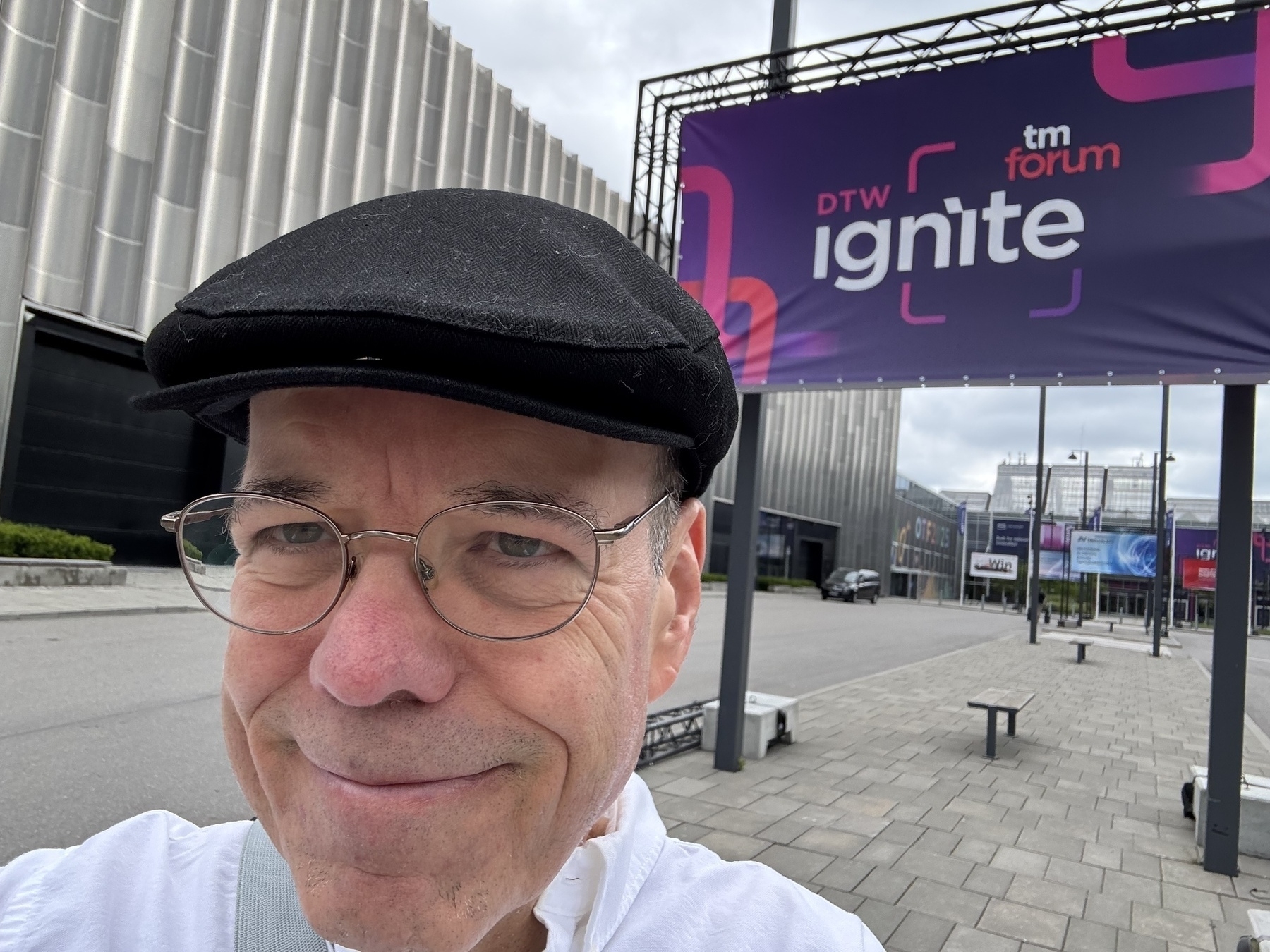A fascinating history of zippers, which were invented in 1892 and didn’t even work for almost 20 years. During all that time, zippers were a scam, a product in search of a solution. After all, buttons and snaps worked fine. articlesofinterest.substack.com/p/new-epi…
What Happens When an Entire Scientific Field Changes Its Mind www.scientificamerican.com/article/w…
I almost came home with another dog this morning, a sweet-faced chihuahua/German shepherd mix. (And isn’t that an unlikely romance?) The woman walking her said she was a foster, and available for adoption. But I resisted temptation.
The foster dog showed no interest in either me or Minnie, and the woman said the foster has a history of being hostile to men. Also, Julie definitely does not want another dog. So I see no reason why adopting that dog would have been a bad idea.
The scarcity of public toilets is a perfect example of American thinking in 2025. Americans would literally shit their pants to avoid the possibility of reducing a homeless person’s suffering.
A good day for our man Gavin
Some days, I hate Gavin Newsom. Some days I love him.
A few months ago, I announced to a friend that if Gavin Newsom is the nominated candidate for President in 2028, I would quit the party. This was around the time that Newsom was hosting his MAGA-curious podcast and making anti-trans statements.
But other days, I have felt like if the Democrats don’t nominate Newsom, I’ll walk.
I was loving Newsom beginning August 14. That was a good day for our man Gavin.
Newsom held a firecracker of a press conference Thursday, announcing the launch of a statewide effort to fight back against Trump’s attempts to rig Texas' elections..
Trump and his cronies are nakedly and without pretense planning to gerrymander Texas, redrawing district lines to generate five additional Congressional seats for the Republican Party.
Newsom and his allies said, effectively, fine then. You gerrymander Texas, we’ll gerrymander California for the Democrats.
Perhaps equally important was the plain language Newsom used:
“California will not sit idle as Trump and his Republican lapdogs shred our country’s democracy before our very eyes," he said. “In just six months, Trump’s unchecked power has cost Americans billions and taken an ax to the greatest democracy we’ve ever known. This moment calls for urgency and action – that is what we are putting before voters this November, a chance to fight back against his anti-American ways.”
Unlike Trump’s naked power grab, the Election Rigging Response Act will be decided by California voters in November. And it will be a temporary change, through 2030, with redistricting returning to the state Citizens Redistricting Commission. And it keeps California’s current Congressional maps if Texas and other states also keep their original maps.
“The damage the Trump administration is causing to our country is clear: masked agents terrorizing communities, tax dollars wasted on military stunts, allies alienated, and loyalists hired to replace public servants,” said Senator Alex Padilla. “This administration is out of control—and the Election Rigging Response Act is how California defends our democracy and fights back.”
And there were a roster of other patriotic Democrats joining Newsom, including San Diego’s Lorena Gonzaez, president of the California Federation of Labor Unions, AFL-CIO; and La Mesa’s State Sen. Akilah Weber Pierson, M.D., chair of the California Legislative Black Caucus.
Under the redistricting proposal, the 48th Congressional District, straddling Riverside and San Diego Counties and held by Rep. Darrell Issa, would move from “safe Republican” to a “lean Democratic” seat.
Newsom trolled Trump on social media:
DONALD IS FINISHED — HE IS NO LONGER “HOT.” FIRST THE HANDS (SO TINY) AND NOW ME — GAVIN C. NEWSOM — HAVE TAKEN AWAY HIS “STEP.” MANY ARE SAYING HE CAN’T EVEN DO THE “BIG STAIRS” ON AIR FORCE ONE ANYMORE — USES THE LITTLE BABY STAIRS NOW. SAD! TOMORROW HE’S GOT HIS “MEETING” WITH PUTIN IN “RUSSIA.” NOBODY CARES. ALL THE TELEVISION CAMERAS ARE ON ME, AMERICA’S FAVORITE GOVERNOR. EVEN LOW-RATINGS LAURA INGRAM (EDITS THE TAPES!) CAN’T STOP TALKING ABOUT MY BEAUTIFUL MAPS. YOU’RE WELCOME FOR LIBERATION DAY, AMERICA! DONNIE J MISSED “THE DEADLINE” (WHOOPS!) AND NOW I RUN THE SHOW. THANK YOU FOR YOUR ATTENTION TO THIS MATTER! — GCN
The specifics of Newsom’s proposal are important, but it’s also important what it represents: Democratic willingness to fight for America.
Newsom’s fighting spirit is a refreshing change for a party that has seemingly spent the last decade or more as the party that “would bring a pencil to the knife fight," as Ken Martin, chair of the Democratic National Committee, said.
During Newsom’s press conference, Trump demonstrated what’s at stake.. Trump sent more than a dozen Border Patrol agents, masked and armed, to stand outside the press venue. It was a show of force meant to intimidate California and force us to bend the knee.
The show of courage by Newsom, Democratic leaders and allies was great. It was a refreshing moment in a time when — as one person said on social media — “its just nothing but bad news these days. even the good news is just ‘federal judge temporarily pauses bad news’".
But it’s not enough. Newsom is still the man who loaned his platform to MAGA extremists and spoke out against trans people. The Democratic Party needs to decide firmly and definitively whether it represents all the American people — including trans people — or attempt to pander to Republican supporters who will never support us.
I wrote this for the newsletter of the La Mesa-Foothills Democratic Club, where I am a board member at large.
I dislike Discord
I dislike it so much that I’ve decided to stop participating in all Discord forums.
Reddit and webforums (particularly those based on Discourse software) are great. Even mailing lists can be pretty good.
But Discord is a mess. Too many channels. Every time I visit one, it’s like I’m walking in on the middle of a conversation and have no idea what people are talking about.
Discord is meant for people who live on Discord and pop in a couple of times an hour to catch up. That’s not me.
I’m feeling a little the same way about timelines — Mastodon, Bluesky, Threads and Facebook and of course X. In the case of timelines, it all seems to be people talking past each other. Tumblr is better, but mostly I’m on Tumblr for the memes and vintage illustrations and photos.
Venice floats on millions of tree trunks that workers pounded vertically into the mud over a thousand years to erect vast stone buildings on top of floating foundations. This is wild, and I had no idea. www.bbc.com/future/ar…
“We need shittable cities (actively maintained public restrooms).… A city without well-maintained restrooms is a city where many of the chronically ill cannot leave their homes, and where the homeless are criminalized for bodily functions.” www.tumblr.com/vautour-c…
President Trump’s War on “Woke AI” Is a Civil Liberties Nightmare www.eff.org/deeplinks…
Questionable coffee
I bought a new coffee on Sunday and did not care for it, but I’ve been continuing to drink it because my parents grew up in the Great Depression, and they would rise from their graves and admonish me if I threw out perfectly usable food.
But it occurred to me yesterday that if I put the coffee in the chest freezer, that would not be throwing it out. And that’s what I did, and I bought a couple of bags of our usual Sumatra, which we like.
And now the bad coffee will live in the freezer forever, slowly working its way to the bottom, like deep-sea creatures sinking to the ocean depths, where the coffee will spend eternity with other foods we have no use for but can’t bear to throw out, such as the bread pudding I bought a few years ago, not realizing I was buying a whole loaf of bread pudding, and foolishly put in the freezer before I had cut the loaf into individual portions. (What the hell am I going to do with a massive loaf of frozen-solid bread pudding? It wasn’t even good bread pudding.)
One day, hopefully in the distant future, Julie and I will both be dead, and the Questionable Coffee will be our heirs' problem.
Things that don’t bother me that seem to bother other people:
- Apologizing when I’m wrong. Just do it and get it over with. It’s a lot more trouble to twist yourself up in knots justifying bad behavior. Everybody fucks up now and then. Apologize and move on.
- Going bald. When I was young, I had long, thick hair. If there were an inexpensive, low-hassle way to get that hair back, I’d do it, but no such treatment exists, so that’s that. When I had a full head of hair, it was wild, and I had to beat it into submission every day. This way is more convenient, and I look ok as I am.
- Picking up dog poop.
Today I’ve been messaging folks I haven’t communicated with in years, and it’s been interesting to see what the last messages we sent each other were, three years ago or whatever.
Maga’s boss class think they are immune to American carnage: They’re in for a surprise. pluralistic.net/2025/08/1…
Cory Doctorow:
… The Maga base wants a bunch of stuff that the Maga elites would never tolerate, but that’s OK, because the Maga elites are pretty sure they will never have to suffer under the laws they pass for others. Peter Theil is happy to support a political movement whose dominant factions would like to put him – and every other gay man – in a concentration camp, because he’s pretty sure that only applies to the poor gays, not the billionaire gays.
Financiers who back Trump know that they can afford to transport their daughters, wives, mistresses and the housekeepers, babysitters and teenagers they impregnate across state lines (or national borders) to get an abortion should the need arise. Their participation in Maga was a bet that after victory was attained, the base could be made to settle for performative cruelty against people other than them.
MAGA’s boss class are counting on so-called moderate Democrats to bail them out when the bubble pops, as happened in 2008, Cory says.
Or they will count on that bailout. For now, I don’t think they’re thinking that far ahead. They’re thinking the hell-bound train will never arrive at its destination.
Here’s something that I’m thinking about: The subprime mortgage bubble in 2008 looted the financial sector. That was catastrophic, but the feds dipped into the rest of the economy to bail out the financial sector.
Today’s looters, led by Trump, are pillaging the entire economy. When they’re done, will there be anything left to bail them out with?
Civilizations fall. It could well be our turn. And that turn may come within a few years, or even months.
No, these thoughts don’t keep me up at night. They’re too big to contemplate. I just go along living my day-to-day life, not too different from how I lived it in the 2010s.
Sorry, the optional AI is mandatory. www.jwz.org/blog/2025…
Scams And Bribery Are Becoming the Foundation of Our Economy. “The United States government taking steps to deliberately introduce cryptocurrency into the heart of our nation’s economy is kind of like a healthy person deciding to pick up a syringe and inject an unknown, harmful virus into themselves. Stick it right in the heart there!” www.hamiltonnolan.com/p/scams-a…
Cybersecurity “red teams” tell the UK government that AI is rubbish, and they don’t think much of quantum computing or blockchain either. pivot-to-ai.com/2025/08/1…
Events that mark the passing of the year: New Year’s Day, Memorial Day, Independence Day, my birthday, buying another year’s supply of dog poop bags, Labor Day, Julie’s birthday, etc.
Mitchellaneous Vol. CIX: Thirteen things I saw on the Internet
“One way to think about AI’s unwelcome intrusion into our lives can be summed up with Goodhart’s Law: ‘When a measure becomes a target, it ceases to be a good measure.'” — Cory Doctorow @pluralistic@mamot.fr pluralistic.net/2025/08/1…
Our two elderly cats, who previously hated each other and couldn’t stand to be in the same room, now lay companionably next to each other on the bed or on the floor.
They seem to have grown fond of each other. For now. It may be leading to a whole “whatever happened to baby Jane” situation.
Also, they were both terribly afraid of the dog, and kept to the back of the house, but now they are conscious of which room the dog is in, and will roam freely around the other rooms.
Seriously, I am confused by these changes. If they were acting badly, I would attribute it to feline dementia, but what accounts for this sudden outburst of more well adjusted behavior?
ICE arrested a mother outside a Chula Vista, San Diego, elementary school for overstaying her visa. They arrested Kyungjin Yu, an immigrant from South Korea, as students were arriving for class. www.kpbs.org/news/bord…
Trump has said America was at its richest 1870-1913, a time when the average life expectancy was about 48 and many children died before their fifth birthday. Trump wants to go back to that. By Molly Jong-Fast. www.nytimes.com/2025/08/1…
The A.O.C. Deepfake Was Terrible. The Proposed Solution Is Delusional. By Zeynep Tufekci. Some clown distributed a deepfake video of Alexandria Ocasio-Cortez denouncing the Sydney Sweeney jeans ad as racist. Andrew Cuomo denounced AOC. But it never happened. AOC never said it. www.nytimes.com/2025/08/1…
A unvaccinated teen-ager brought 2025’s first case of measles to San Diego County. He may have exposed others in Scripps Clinic Torrey Pines Urgent Care and Rady Children’s Emergency Department. timesofsandiego.com/health/20…
Defense Secretary Pete Hegseth resposted a video of a self-described Christian nationalist pastor whose church doesn’t believe women should be allowed to vote. “Doug Wilson, senior pastor of Christ Church in Idaho, said during the interview with CNN that, ‘Women are the kind of people that people come out of.’ … In the CNN interview, Wilson also defended previous comments where he had said there was mutual affection between slaves and their masters. He also said that sodomy should be recriminalized….. In his repost of the interview on the platform X, Hegseth added, ‘All of Christ for All of Life.’….
“Chief Pentagon spokesman Sean Parnell told NPR in an emailed statement on Saturday that Hegseth is a ‘proud member of a church affiliated with the Congregation of Reformed Evangelical Churches,’ which was founded by Wilson.”
Dave Pell: “As crazy as you think these guys are, they’re crazier.”
AOL is discontinuing dial-up internet service after 34 years. Though AOL says the number of dial-up subscribers it has is in the thousands, the US government estimates that about 265,000 people still depend on dial-up Internet. I am more surprised to learn AOL is still around than I am to learn dial up is still around. www.techspot.com/news/1090…
Is 40’s the new 60’s? 40-year-old man describes how ageism is killing his job search www.financialexpress.com/trending/…
Inside America’s Quiet Safety Revolution: How Local Leaders Are Cutting Crime Without More Cops www.forbes.com/sites/ric…
How big trucks and SUVs gobbled up the entire auto industry. ‘Car bloat’ is what you get when companies prioritize profits over safety. www.theverge.com/the-stepb…
" … Trump is deploying troops against an imaginary enemy in DC before heading to Alaska to surrender to a real one." nextdraft.com/archives/…
Today’s computer science grads face more than double the unemployment rate of art history majors. nextdraft.com/archives/…
This long interview with Sharon Stone is extremely intense. www.theguardian.com/lifeandst…
Mitchellaneous Vol. CVIII: Thirteen things I saw on the Internet
Walking Liverpool, Leicester, and a little bit of London. “Two smaller English cities connected by football, the letter L, and depression.” By Chris Arnade walkingtheworld.substack.com/p/walking…
How AI, Healthcare, and Labubu Became the US Economy. “… the US is becoming Las Vegas - but everywhere. We are essentially building a glorified, speculative fantasy while China focuses on the foundational, ‘boring’ work of scientific and technological advancement.” kyla.substack.com/p/how-ai-…
A bleak assessment by Kyla Scanlon. But she ends on a cautiously hopeful note. We have the skills and labor to turn the U.S., and the west, around. We need the will and leadership.
Good ideas are popular: But they’re impolitic. “In democracies, we’re told, politicians exist to reflect and enact the popular will; but the truth is, politicians’ primary occupation is thwarting the will of the people, in preference to the will of a small group of wealthy, powerful people.” Most people around the world support socialism and socialist policies. But politicians don’t represent most people; politiians represent the super-wealthy. Fortunately, the super-wealthy hate each other, which gives the people people opportunity to enact policies that benefit all. By Cory Doctorow pluralistic.net/2025/08/0…
First impressions of Sydney. “A remarkably relaxing city – maybe too relaxing?” By Chris Arnade walkingtheworld.substack.com/p/first-i…
As always, I admire Arnade’s photographic skills, his ability to capture beauty in mundane streetscapes.
Coming Soon: Your Professional Decline. On kottke.org.
“Super weird to have innocuously added a silly personal anecdote to a post you didn’t realize was super popular… Only to have it cross your dash a week later and find out that like 12,000 people think you’re lying. ¯_(ツ)_/¯” www.tumblr.com/dduane/79…
“…. watching otherwise “progressive” people start to parrot jokes about like “Clanker with a hard R” and “screws will not replace us” and whatnot is like 🫥 “ www.tumblr.com/reverieau…
OpenAI is an arm’s-length subsidiary of Microsoft, and OpenAI needs GPT5 to convince Microsoft to keep the money flowing and not just swallow OpenAI outright. pivot-to-ai.com/2025/08/0…
Recent antitrust fervor is millionaire-on-billionaire violence. By Cory Doctorow. pluralistic.net/2025/08/0…
RFK Jr. wants a wearable on every America. That future’s not as healthy as he thinks. www.theverge.com/analysis/…
Victoria Song talks from personal experience how wearables can lead to obsessive thinking and create more problems than they solve. “My first three years with wearables wrecked my relationship with food.”
Song doesn’t even mention other important issues: RFK Jr. is a malevolent lunatic, possibly more dangerous than even Trump. RFK’s deranged theories about health could potentially kill millions of people. And he wants to put a surveillance device on every American.
One of the oldest known archeological sites on Earth, 12,000-year-old Gobekli Tepe in Turkey, meets up with conspiracy theorists and Joe Rogan. www.kpbs.org/news/inte…
I just used the word “deliverables” in an email non-ironically. I feel dirty and not in a good way.
Trump’s attack on Intel is a big dumb distraction. By my colleague Diana Goovaerts on Fierce Network. www.fierce-network.com/cloud/op-…
ChatGPT5 and other leading GenAI chatbots still fail hilariously at simple tasks like drawing maps and timelines of U.S. Presidents. But not always. www.theregister.com/2025/08/0…
On Reddit: What are some weird things you do at your desk because you WFH and would never do in the office? reddit.com/r/WFH/com…
Me: Nostril excavation. I’m a nose-pickin fiend. Gotta remember to keep my fingers away from my beezer when I’m on a video call.
A judge threw out the sex harassment suit against ex-San Diego county supervisor Nathan Fletcher. timesofsandiego.com/crime/202…
ChatGPT is bringing back 4o as an option because people missed it. People said ChatGPT 4o was their only friend. www.theverge.com/news/7569…
Masked government-employed thugs harassed and threatened a couple of American citizens for the crime of being brown while driving around looking for places they might want to go camping sometime. www.nbcsandiego.com/news/loca…
The couple, George and Esmeralda Doilez, voted for Trump in 2020 and 2024, and say they are surprised by his extremism.
AI Is Here, and a Quiet Havoc Has Begun. Everyone knows artificial intelligence will destroy a lot of jobs. But not how soon it is going to happen. By Peggy Noonan. www.wsj.com/opinion/a…
Will AI destroy jobs? Automation, in the past, has created more demand for knowledge work. Spreadsheets increased demand for accounting, even though much of the work accountants did was automated away.
Also, we don’t know whether AI can actually do these jobs that are being replaced. All we know is that people doing the hiring are panicking. Like Cory Doctorow says: AI doesn’t threaten your job. Your job is threatened by your idiot manager who thinks AI can do your job.
I am repulsed by AI chatbots' attempts to emulate human behavior, and have all of that switched off in my ChatGPT customization.
Maybe one day we’ll achieve AGI or artificial superintelligence, but I see no reason to believe it’s coming anytime within the next 25 years or so. I view these ideas the way I view other ideas I first encountered in science fiction, like contact with alien intelligence or time travel. Could these things happen? Most definitely. Yes. Absolutely. But we have no reason to believe they will happen anytime soon, or ever.
Meanwhile, I use ChatGPT to suggest passphrases, synonyms, do currency conversions, and suggest article descriptions, headlines, transitions, introductions and conclusions to reports, and do first drafts of the occasional LinkedIn post and business email. And more. I am very happy to do so.
But ChatGPT is not my friend and it’s certainly not my lover.
Dave Winer on ChatGPT5:
The big lie is that they want you to believe this is human. This is a carnival stand imitation of a human. It may be that it’s getting worse, or it’s always been this way and I’m seeing more clearly. It was and is still a miracle, but nothing like what was in the science fiction books.
Dave uses ChatGPT in ways very similar to how I do. He makes heavy use of it, but does not personify it.
Mitchellaneous Vol. CVII: Eighteen things I saw on the Internet
The Grooms Smashing Wedding Cake in Their Brides’ Faces. “I was thinking, ‘We are going to be together forever. But I’m not going to be happy.’” www.thecut.com/article/g…
This is why wireless is so weird right now. www.fierce-network.com/wireless/…
Is “A Candle in the Wind” or “Highway to Hell” more emblematic of the state of wireless in the aftermath of T-Mobile’s US Cellular acquisition? My colleague Monica Alleven assesses the state of things on Fierce Network.
Unfortunately, Terry Gilliam’s Brazil still holds up, 40 years after its release. “Wildly inventive at every turn, Gilliam’s satirical vision of a cruel and violent bureaucracy rings eerily true of this political moment.” www.theverge.com/film/7193…
The U.S. Air Force will deny retirement pay to transgender service members being separated from the service. This is a disgraceful betrayal of people who pledged their lives to serve their fellow citizens. www.sandiegouniontribune.com/2025/08/0…
Dear Leader did not do military service. He had bone spurs.
Harvard is laying off young researchers and shelving years and decades of work after the U.S. government’s stupid decision to cut funding for research into cures for multiple sclerosis and other neurodegenerative diseases, opioid addiction, cancer, and other afflictions. www.sandiegouniontribune.com/2025/08/0…
But the White House is getting a $200 million ballroom to celebrate glorious Dear Leader.
‘Personality engineering’ puts a human face on telco AI agents. www.fierce-network.com/cloud/per…
My latest on Fierce Network. Amdocs is working with Nvidia on customizing AI customer service agents with human-like characteristics — they have faces and talk — to ensure they effectively represent telco brands. Trials delivered a remarkable 63% reduction in call handling time and a 50% uplift in first-call resolution and customer satisfaction. But AI agents may be facing backlash from consumers.
Mitchellaneous Vol. CVI: Twelve things I saw on the Internet
Which jobs can be replaced with AI? Jobs that have already been degraded to the point of uselessness. pluralistic.net/2025/08/0…
If you oppose the State of Israel, this post is not for you. coreyrobin.com/2025/08/0…
This quote in particular strikes close to home for me: “The stain of this abomination will forever be on the Jewish people because we have not stopped this.”
Links and ephemera Wednesday 8.6.2025
Minnie is a medium-sized dog, which means even though she isn’t that great on the leash, it’s OK because I can muscle her into line if she engages in undesirable behavior. I am sure this is not an option when you are a normal-sized woman walking two weimeraners. Even if one of the weimeraners only has three legs.
Our next-door neighbor adopted a three-legged dog, and I saw her walking both of her dogs this morning, and that’s nine legs total. 15 if you count me and Minnie. Both neighbor dogs are Weimeraners, and our neighbor is a normal-sized woman.
Links and ephemera Tuesday 8.5.2025
For me, like hundreds of millions of men around the world, every other morning I look in the mirror and say to myself, “shit I have to shave again today.”
We gave the cats flea treatments. The doctors say that I will now have to undergo many rounds of surgery and painful physical therapy, but I have a good chance of regaining the use of my shredded arms.
Links and ephemera Monday 8.4.2025
“After Hours” and “Barton Fink” are two movies where the trailers promised lighthearted comedy and I walked out of the theater feeling like I’d been punched in the face.
Links and ephemera Sunday 8.3.2025
Ephemera Saturday 8.2.2025
I’ve been trying out a couple of new web browsers and moving my newsletter subscriptions to different email addresses. The I-am-not-a-robot gauntlet has been brutal.
Link and ephemera Friday 8.1.2025
Links and ephemera Thursday 7.31.2025
One day when I was in the third grade, our music teacher, Mrs. Lafayette, had the class compose a song together. Words and music. It was only about 10 seconds and it went like this:
“Early in the morning
Standing by the road
I jumped when I saw a little toad.”
(Then two more lines here with the same beats as the first two. I don’t remember those lines now.)
“Then I caught him nibbling at my sock.”
55 years later, sometimes I catch myself singing that stupid song, inaudibly, under my breath.
I use an app called Lose It to track calories, and I have cottage cheese with lunch nearly every day. I bought a different brand than usual recently, and Lose It lists it as “cootage cheese.” This amuses me to an unreasonable degree.
Cootage cheese.
Link and ephemera Wednesday 7.30.2025
Cloud-native becomes telcos’ new baseline after supplier upheavals. fierce-network.com Recent industry M&A shook the virtualization market and pushed telcos to rethink their infrastructure strategies. Find out how telcos are adapting and thriving in our latest Fierce Network research report. My latest on Fierce Network.
Here’s something I saw while walking the dog: This pleasing house

Links and ephemera Tuesday 7.29.2025

Currently reading: The Stainless Steel Rat Saves the World by Harry Harrison 📚
Links and ephemera for Monday, 7.28.2025
✪ The Department of Homeland Security is tweeting Nazi propaganda. msn.com
✪ Passkeys won’t be ready for primetime until Google and other companies fix this zdnet.com — I don’t use Passkeys. I don’t quite understand them. I researched them when they first started hitting the mainstream, but have since forgotten what I’ve learned. I fear I could be locked out of my accounts if Apple and/or Google take a dislike to me. Passwords and 2FA are faulty, but they’re devils I am familiar with.
✪ How chat-based LLMs replicate the methods of a psychic con. softwarecrisis.dev
✪ This little boy is why we need live music in public spaces.
✪ Anthony Bourdain on In-N-Out: “My Favorite Restaurant in L.A.” youtu.be. I like, but do not love, In-N-Out.
I had an actual, legitimate wrong-number text just now, followed by a phone call. They weren’t trying to get me to invest in crypto or a pump-and-dump meme stock. They were just trying to reach somebody else and got me instead.
What a refreshing novelty.
I went to Comic-Con yesterday. Here are some photos
More precisely, I went near Comic-Con. I didn’t get tickets. But that’s OK — Comic-Con takes over all of downtown. I like to ride the Trolley in, walk around, people-watch, take photos, look at all the wild decorations and themed attractions studios put up to advertise the big movies and TV shows. I like to rack up the steps. I did 23,000 steps yesterday. A friend came down from Orange County, and it was delightful to see him.

I’m on my way, looking dapper, if I do say so myself, wearing a tasteful shirt.


This is not a Comic-Con photo. It’s just a nice scenic photo of the San Diego embarcadero.

Another scenic San Diego photo.










In past years, there used to be a couple of dozen of these guys hanging out at the trolley stop. Now I only saw two or three scattered around. We used to be a country, I tell ya.

Dozens of downtown skyscrapers are wrapped to advertise TV and movies. This is just one example.

At first glance, I thought this gentleman, who I saw on the Trolley ride home, was cosplaying. Upon further scrutiny, I think he is just exquisitely fashionable.
Links for today Saturday 7.26.2025
✪ “Resident Alien,” one of our favorite TV shows, is canceled. Son of a bitch! This is some bullshit! deadline.com
✪ Today I learned Ron Goulart wrote a series of mystery novels featuring Groucho Marx as a detective. en.wikipedia.org
✪ “The head of the main UN agency serving Palestinians has said his frontline staff are fainting from hunger, as the number of people dying of starvation in Gaza continued to rise and hopes for a ceasefire faded as negotiations collapsed.” theguardian.com
✪ “A group of far-right Israeli politicians and settlers met in parliament this week to discuss a plan to displace Palestinians from Gaza, annex the territory and turn it into a hi-tech, luxury resort city for Israelis.… Michael Sfard, one of Israel’s leading human rights lawyers, said: ‘This is a plan for ethnic cleansing. Under international law, this would amount to a crime against humanity because deportation is a war crime when committed on a small scale and a crime against humanity when it is committed on a massive scale.'” theguardian.com
✪ “Venezuelan men who were deported by the US to a notorious prison in El Salvador without due process are speaking out about treatment they described as ‘hell’ and like a ‘horror movie’, after arriving back home.” theguardian.com
✪ Immigration agents told a teenage US citizen: ‘You’ve got no rights.’ He secretly recorded his brutal arrest theguardian.com
✪ JD Vance Claims One of Our Worst Traditions as His Own. By Jamelle Bouie. nytimes.com Vance echoes the principles of the Dred Scott decision, which declared that Black people were an inferior race who could never be US citizens.
✪ White House Slams ‘South Park’ After Unflattering Depiction of Trump. hollywoodreporter.com The South Park episode includes a realistic, AI-generated image of a naked Trump showing his micropenis. youtu.be
✪ Ghislaine Maxwell Can’t Help But Notice Interview Room Covered In Plastic Sheeting. theonion.com
✪ Today’s labor market is “less like a ladder, more like a slot machine,” resulting in “zero-sum logic” that is poisoning society, writes Kayla Scanlon. kyla.substack.com
In 1957, the Soviet launch of Sputnik triggered a huge US response. It led to 3x funding for science education, created NASA and DARPA, and created massive investment in talent and infrastructure (and optimism). The US looked at a challenge and said: We can build our way out of this.
As economist Alex Tabarrok pointed out in his piece about the Sputnik moment, that kind of mobilization didn’t happen in 2024 when China’s DeepSeek AI surpassed OpenAI’s GPT-4. The US retreated instead of rallying. We looked at a challenge and say: They must be stealing from us.
This is a shift in how we understand problems and solutions. As Alex highlighted, research shows we’re developing what economists call zero-sum thinking, or the belief that my success requires your failure, that wealth and opportunity are fixed pies to be divided rather than expanded. As Alex explains, zero-sum thinkers “see society as unjust, distrust their fellow citizens and societal institutions, espouse more populist attitudes, and disengage from potentially beneficial interactions.” It’s a form of despair that arises during times of economic uncertainty.”
As Scanlon notes: This is reversible.
✪ The Seeds of Democratic Revival Have Already Been Sown. nytimes.com — I love nearly all of this article — but I am deeply troubled by suggestions we should fail to support our LGBTQ fellow Americans.
✪ “You think you’re the coolest guy in the parking lot and then this guy shows up.” “This guy” being a cat. tiktok.com
✪ Skittles gets a hat. tumblr.com
✪ Prepare Batcopter for immediate takeoff. tumblr.com
✪ By the way, is there anyone onboard who knows how to fly a plane? tumblr.com
"The Stainless Steel Rat" is the GOAT nickname for a fictional hero
He was the hero of the Stainless Steel Rat books by Harry Harrison. His full name is James Bolivar diGriz, aka “Slippery Jim diGriz.” Also good names. Harrison had a good ear for how names sound.
I loved those novels when I was a kid.
I also loved Harrison’s “Deathworld” novel series, whose hero also had a pretty good name — Jason dinAlt.
On the other hand, “Jake Cardigan” is a ridiculous name. He was the hero of the Tekwar novels and TV series, created by William Shatner. Ron Goulart ghostwrote the books.


I think I’m going to stick with the Zen browser. I found it confusing at first, even though I used the Arc browser, which is similar, for months. But I think I have it figured out. I particularly like compact mode, where I can easily use a keyboard shortcut to show and hide the toolbars and sidebars for maximum screen real estate and focus.
I prefer to write in Markdown, but often I have to write in Microsoft Word, and I hate it, because I find myself devoting significant time to managing Word, rather than writing and making formatting decisions.
This morning, I had a block of text that I wanted to format in bullets. Simple, right? I’ve done it a million times. But Word would not let me format that particular block in bullets, and I spent 15 minutes plinking around in the user interface and doing web searches figuring it out.
This is not at all unusual behavior for Word. There are even memes about it.
I’ve been using the Zen browser for a couple of hours. I think I like it, but it’s confusing. I used Arc for a few months a year or two ago. Zen is very similar but different in significant ways. Zen also seems very buggy.
My phone is an iPhone 15 Pro Max — the big one. I think I might be happier with a standard-size iPhone.
The standard-size iPhone doesn’t have the iPhone’s best camera, so I think I’d also like a small camera too.
And I think I’d like an iPad mini, for when I want a bigger screen.
Then I think, why don’t I just set a stack of $100 bills on fire instead?
I’m thinking about trying Firefox or one of its forks for the Mac, iPhone and iPad. Does anyone have experience to share and suggestions? I was looking at Floorp.
A friend told me yesterday that I should take up painting. Later, I was reviewing my to-do list and saw, in the someday/maybe area: “Learn to draw? Take a class?” I have no memory of adding that task, but my to-do software says I added it three weeks ago.
I have not tried to draw anything since I was a pre-teen in art class. I expect if I tried now, the result would be so bad that you would not even be able to figure out what I am trying to draw.
And yet….
I have discovered Skymoth, which automatically crossposts Mastodon posts to Bluesky. My inexorable plan for global domination progresses!
I searched on my own name in an AI chatbot, which I have not done for a while. The chatbot universe has now learned that I am not the San Diego trial lawyer named “Mitch Wagner,” but it still thinks I’m a crossfit athlete with strong rankings in national and regional competitions over several years. (Which, no — I would say I am extremely healthy and fit for a middle-class American my age, but no, I am not a competitive athlete. I have seen photos of that Mitch Wagner with his shirt off, and it is very different from the shirtless me I see in the mirror.)
I was told tonight that I look like the composer Igor Stravinsky.


Is Mastodon "toxic?"
I’ve heard from two people in the past 24 hours who have dropped Mastodon, citing negativity. One said it’s “pretty fucking toxic.”
Meanwhile, I’m focusing more of my blogging and social media on Mastodon (and Tumblr too, but I’m talking about Mastodon today).
I’m taking a break from posting to Bluesky because I don’t get enough activity there to be worth posting to.
And I am taking a break from posting to Facebook — hopefully permanently — because I don’t like Meta and I don’t like the way Facebook operates.
Different people have different experiences, and my social media profile is so low nowadays that if Masto is toxic, I may simply be too small to target.
One of the reasons I chose Masto over Bluesky is that I was able to migrate my account to a server, hachyderm.io that permits posts of up to 2,263 characters. I hate short character limits — 140 characters, 280, 300, 500. I have more than that to say.
Here’s my link page, where you can find my links to Mastodon, Tumblr, etc.
Customizing Grammarly to be less pushy and annoying
I use Grammarly to check grammar and usage in my writing. I find it valuable, but also excessively intrusive. The recent update is more aggressive and annoying about making arbitrary and unnecessary changes.
I decided to read through the documentation and lo! there is a preference page.. I’ve switched off some types of suggestions — for example: “Sound more personable,” “Use word variety,” “Use descriptive, vivid words,” “Rewrite text for improved effect,” etc. This makes Grammarly far less pushy and annoying and more useful,
I am an extremely good writer, but a mediocre proofreader at best. Also, Grammarly is great at cutting out extraneous words. I want Grammarly to focus on those things, not look over my shoulder and make obnoxious suggestions.